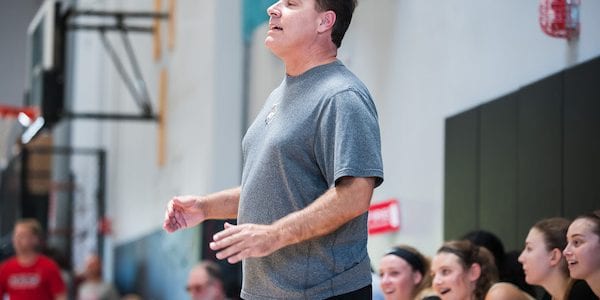
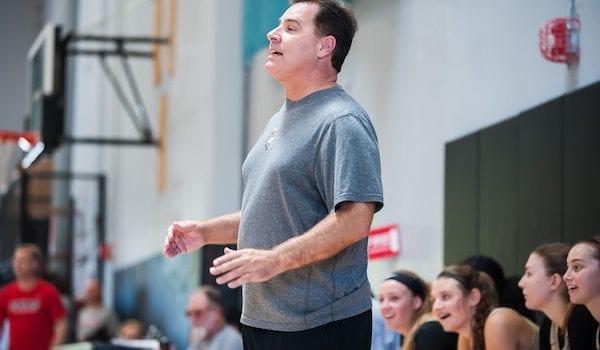
Kelly Sopak | Clear Vision: Miramonte Hoops Coach Nears Milestone
High School BasketballHigh School Sports FeaturesNorth Coast Section March 5, 2020 Clay Kallam 0

As Miramonte Girls Basketball Coach Kelly Sopak Nears 400 Career Wins, He’s Taking A Calmer Approach •
Kelly Sopak had a question: “What are those progressive lenses like?”
Sopak, in his 11th year coaching at Orinda’s Miramonte High, turns 51 this month, and is considering his vision-improving options. Though age may not necessarily bring wisdom, it does bring changes – and sometimes for the better.
“I don’t take everything so seriously,” he said about the differences between his coaching style now and when he first started at Northgate-Walnut Creek in 2004. “I’m just as competitive, but I was more outwardly competitive.”
Claire Ely, who played for Sopak at Northgate and is now an assistant at Miramonte, agrees. “Games were much more important then than now,” she said. “At that time, he had something to prove — every win mattered.”
Today, however, he has 398 wins at the high school level, plus countless others coaching with his club team, Cal Stars. Sopak recorded his 300th Miramonte win earlier this year, and should the Matadors win two more postseason games, he would reach the 400 career mark before his 51st birthday — all of which has shifted his perspective.
_______________________________
CONNECT WITH US:
Follow SportStars on Twitter & Instagram | Like us on Facebook | Subscribe!
_______________________________
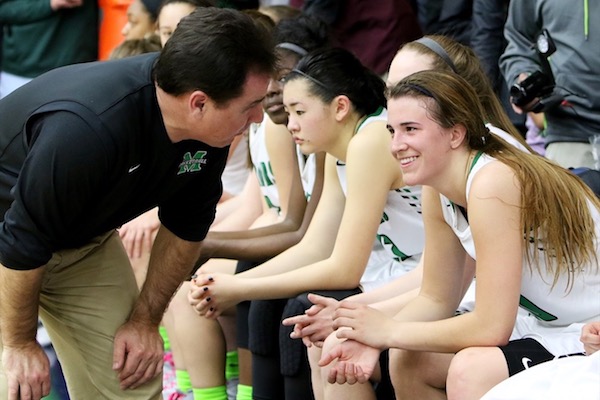
Kelly Sopak shares a moment with former Miramonte star and current college basketball phenom, Sabrina Ionescu. (Beverly Sopak photo)
“He gets the big picture,” said Ely, who was an All-American at the University of Puget Sound. “He understands that it’s about more than basketball.”
His daughter, Leah, now a senior at Miramonte, can recall playing in the stands in his early coaching days. “He’d stomp his foot,” she said, “and do the yelling thing. But he’s lightened up — he does things in a different way. He gives you that look. His competitive edge is still the same.”
He honed that edge at Bethel High School near Tacoma, Wash., where he was a three-sport star — though oddly none of them were basketball. He was a running back and kicker in football who got some Division III offers after a 186-yard game. In his one year of wrestling, he advanced to the regional finals at 178 pounds, a major achievement in wrestling-mad Washington.
His main sport, though, was baseball. After an all-state senior season, he played two years of junior college before getting a scholarship to the University of Nevada. But as a pitcher who threw in the low 90s, a shoulder injury pretty much ended his career after one season, though he went on to play at the semi-pro level.
After settling in the East Bay, Sopak started coaching with a fellow State Farm agent, Mark Bucklew, at Northgate — where Ely remembers him as the “calm one.” After four years as head coach or co-head coach, he moved to Miramonte and quickly righted the ship for a one-time powerhouse that had lost its way.
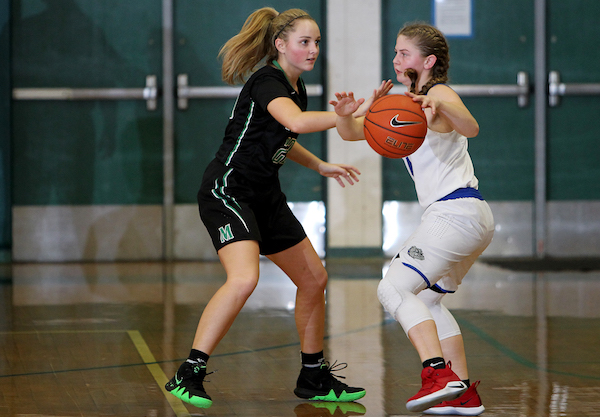
Leah Sopak, left, is in her final year of playing for her dad at Miramonte. (Dennis Lee photo)
Carly Gill, who played for Sopak’s first teams there and is now also a member of his coaching staff, remembers it well. “It was a totally different level of intensity,” she said. “The expectation was that we would give 100 percent every time we stepped on the floor for practice and games.”
That expectation hasn’t changed, but other aspects of practice — where coaches spend by far the most time with their players – have shifted.
“He was very stubborn initially,” said Ely. “Each and every player needed to complete every drill to perfection.”
“He was harder on people’s mistakes,” said Gill — and both Gill and Ely are still surprised in practice when the losing players of a competitive drill don’t have to do the running they experienced, or the team gets days off during the season.
“I’ve learned there’s a lot of different ways to do things,” Sopak said. “I had to realize to take advice as advice, not as criticism. As a young coach, you get defensive when people tell you things. You think it’s a shot on you.”
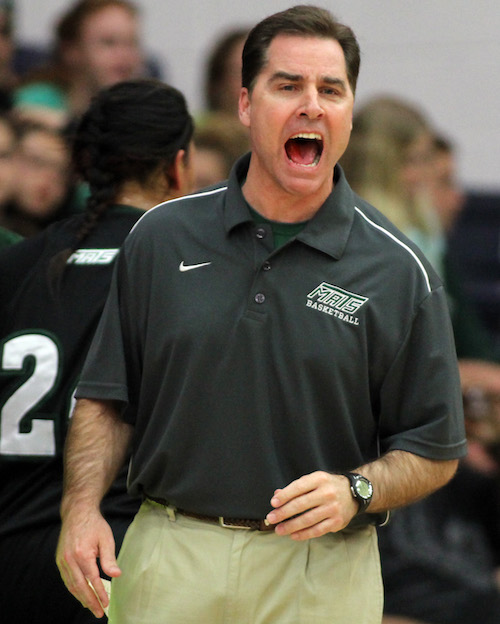
A more fiery Kelly Sopak yells toward the court during the 2012 North Coast Section Div. III final. (Bob Larson photo)
One source of advice comes from Sopak’s staff, which is very large for a high school team. There are five assistants from whome he wants different ideas and input during games. “The game moves so fast you might miss things,” he said.
Sopak also goes much deeper into his bench than when he first started as well. “I hear from outside we play too many people,” he said, “but over time, you realize number four on your ladder isn’t necessarily a lot better than number nine. Number nine can give you serviceable minutes.
“And you also need to be versatile. You can’t have just one combination of players —you have to be able to counter.”
As an example, pressing defenses were a calling card of his past teams. Now, Sopak points to games against Pinewood-Los Altos Hills and Bishop O’Dowd-Oakland this year when he played man-to-man a majority of the game. It’s an adjustment he was less likely to make as a young coach.
Then there’s the most visible aspect of a coach on the sidelines — how he deals with officials.
“I couldn’t wrap my mind around bad calls when I was younger,” he said. “But what I didn’t know then was that if you’re that guy who complains all the time — and I was that guy — your players complain all the time, too.”
His experience with the Cal Stars, who play around the country and have won national titles, has given him perspective as well. “I know what bad officiating is like,” he said, “and in high school here, we get professional, hard-working officials. They’re human and they’ll make bad calls, but you try to treat them the way you want to be treated.”
He also is more conscious of how his coaching impacts his players, and he would like to do better. “I still struggle with the team-bonding aspect,” he said. “I’m not the warm and fuzzy team-bonding coach.”
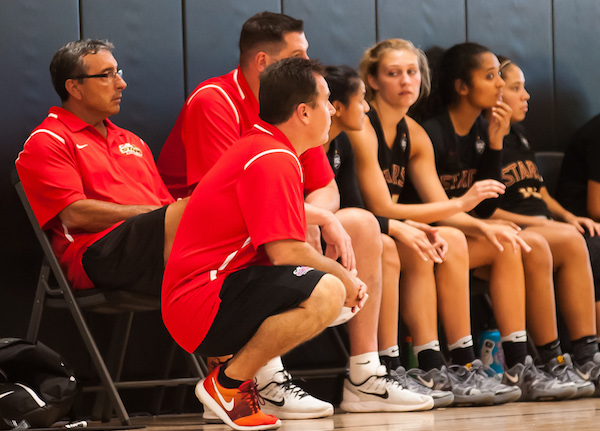
Sopak watches play as he coaches his Cal Stars team during a 2018 event in Walnut Creek. (Samuel Stringer photo)
That said, his biggest focus now isn’t on the wins and losses during each season. Those are still very important, but he now focuses more on how his players feel about the program.
“The four-year experience of each player is what matters most to me,” he said. “It’s great when players like Sabrina Ionescu come back to games, but it’s even better when role players do. That tells me their time playing basketball at Miramonte really meant something to them.”
Of course, no story about coaching today could be complete without the obligatory reference to “kids today” — but Kelly Sopak isn’t buying that part.
“I really believe kids have not changed,” he said. “What mattered to me as a teen-ager matters to my players today. What has changed is the parents — we as parents are much more involved than in the past. There’s a lot more outside noise now. But for me, it’s only become slightly more difficult to relate to parents than when I started.
“As long as the kids make it worthwhile to make it to practice every day, I want to keep coaching,” he said. “It’s a little easier now as well, because I see things a little more clearly.”
With or without the new glasses.
[bsa_pro_ad_space id=20]






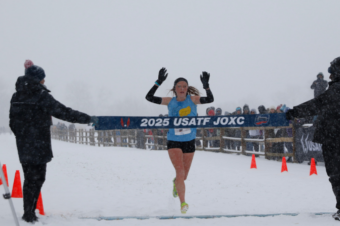
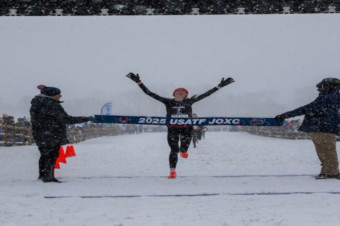
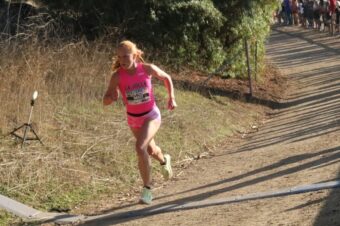
No comments so far.
Be first to leave comment below.